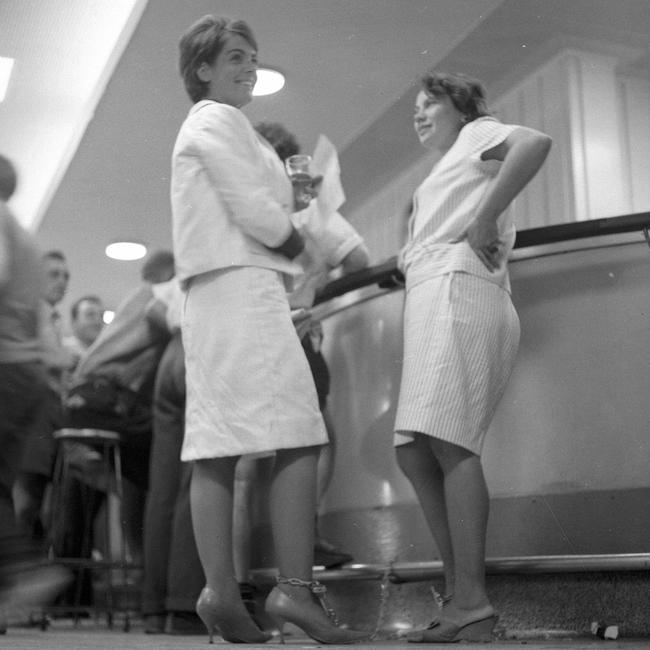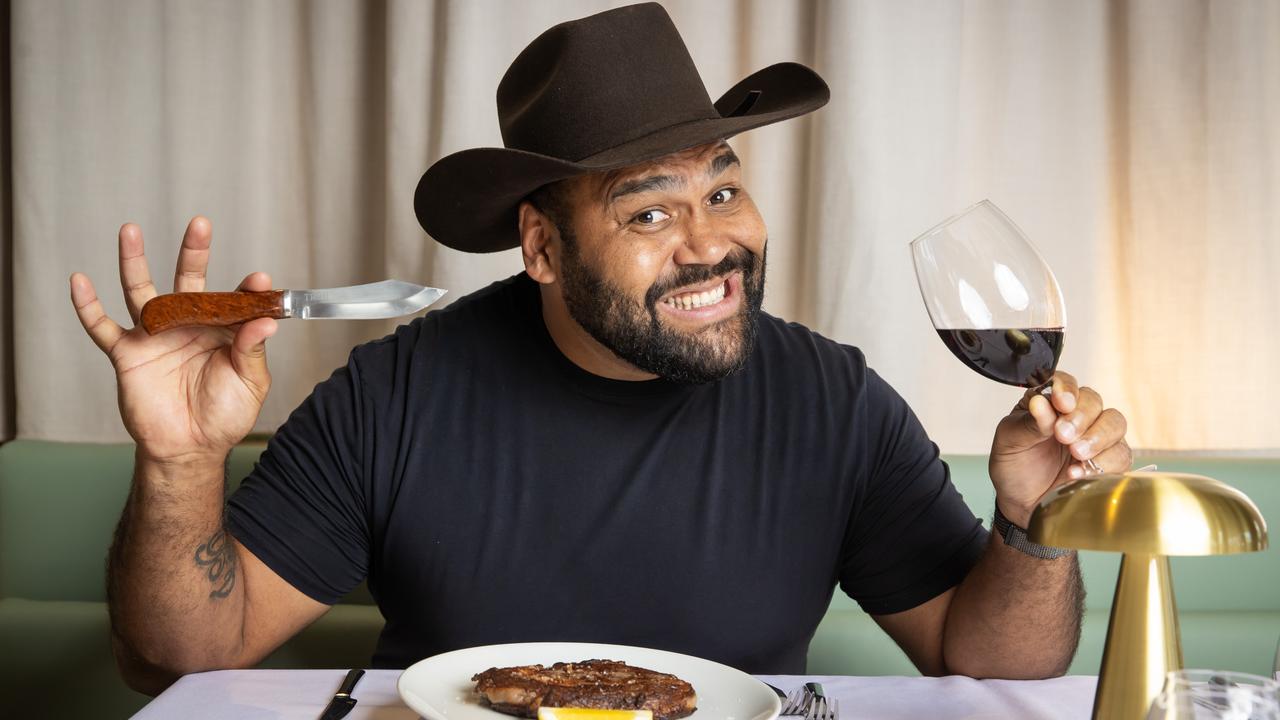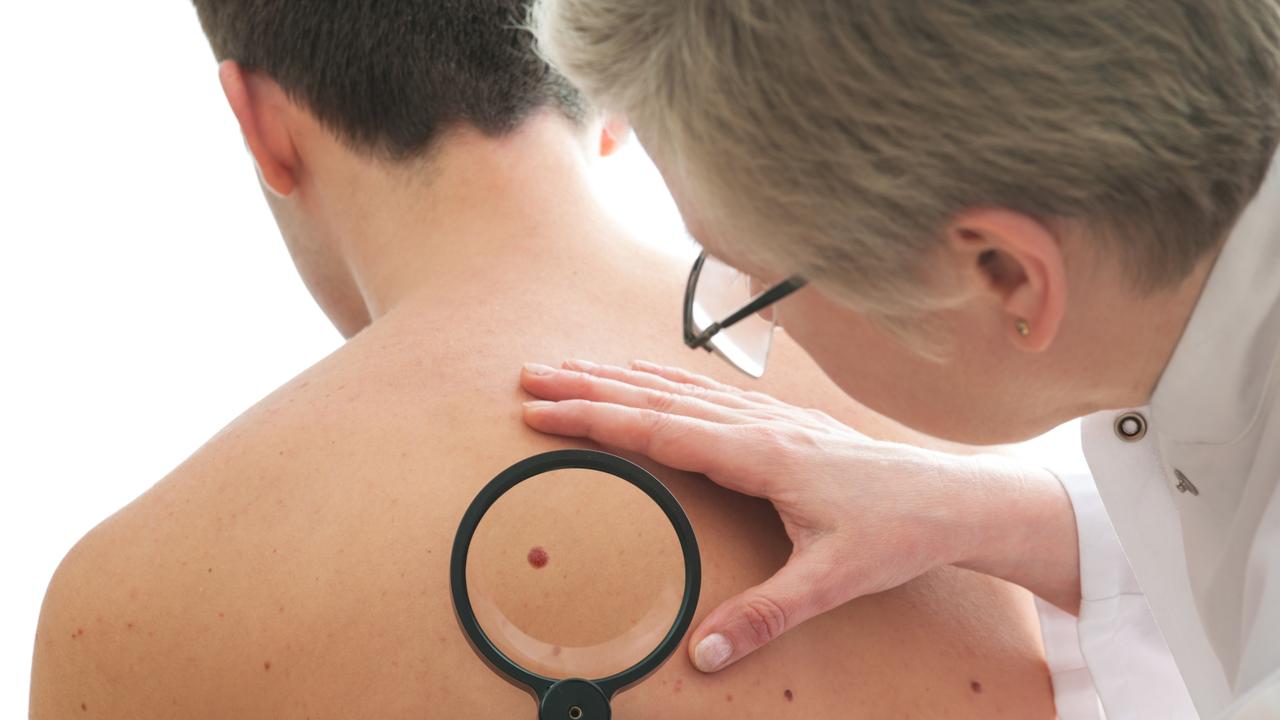Sigrid Thornton on gender equality and why it’s a good time for women in film
It was the one and only time Sigrid Thornton can remember that she was embarrassed by her social activist parents.

QLD News
Don't miss out on the headlines from QLD News. Followed categories will be added to My News.
It was the one and only time Sigrid Thornton can remember that she was embarrassed by her social activist parents.
Every pew in the chapel at St Peters Lutheran College, Indooroopilly, was filled for the Year 12 speech night. Thornton, then 16, about to graduate and take her place in the world as an actor who would become an Australian icon, sat patiently with her mum, Merle, and dad, Neil, up the back of the chapel.
All was well until the keynote speaker, Joh Bjelke-Petersen, then coming up to almost the midpoint of his reign as Queensland Premier, turned the valedictorian address into a political opportunity.
Merle and Neil turned to look at each other, and then loudly began heckling Bjelke-Petersen.
“Oh, and they really heckled him,” says Thornton, now 60, and who was named an Officer in the Order of Australia (AO) in this month’s Queen’s Birthday Honours. “They really gave him what for because he started to use the occasion as a political platform which was indeed inappropriate.

“I do you remember wanting the ground to swallow me up on that occasion.”
Thornton laughs at the memory, adding that she was very proud of both her parents.
Despite their decades of activism, rebelling against injustices — Merle is now 89 and “still nothing if not outspoken”, while Neil passed away two days after gathering the family together for Christmas in 2014 — Thornton looks back at it as a normal childhood.
“I was probably regarded as a bit of an oddity, really, in the sense that I went to a very good school, that was giving people a real education of excellence,” she says. “It also had its own pretty straight-laced ethos. But when I think back on the responses to some of the stuff that happened, including myself and the rest of the family being arrested during one of the Vietnam Moratorium demonstrations, I think there was a little bit of scuttlebutt but they handled it very well, you know.”
The entire family being carted off to jail by Queensland police during the Vietnam sit-down demonstration in the middle of Brisbane’s CBD, was only a few years earlier, in June 1972, when Thornton was 13 and her brother, Harold, was 16.
Seven years before that, Merle made international headlines when she and friend Rosalie Bogner chained themselves to the footrail of the Regatta Hotel’s front bar to protest against state laws excluding women from public bars. (The law was eventually overturned in 1970). Neil posted himself out front handing out pamphlets explaining the cause.
“I remember that night because I was allowed to stay up and watch TV,” says Thornton, who sat in front of the box watching Robert Moore introduce Four Corners on the ABC. “An unusual show for a person of our age, who normally should have been in bed, you know.
“Brisbane was a very fertile ground for reaction against, essentially, a police state.
“The ratio of protesters was enormous per head of (Brisbane’s) population. It was very high during the Vietnam Moratorium period; and it was the birthplace of Australian punk music. The Saints came out of Brisbane. So things like that, which were reactions against a very restrictive society, were common in Queensland.”
Those incidents will form part of a two-night-only show that Thornton and her mother will deliver at the Powerhouse Theatre next month. Titled Frank And Fearless, the show was commissioned by the Queensland Music Festival and is billed as a celebration of women’s rights as the pair sit down for an open discussion on gender equality and the past, and ongoing, efforts for the cause. Their chat is interspersed with live music tracking the soundscape of Merle’s lifetime of work.
“We folded in the musical performances to give the audience a sense of not only of what happened, but the time in which it happened, and the kind of Brisbane that was then,” Thornton says, adding that her job is to draw her mum into a generational conversation.
“It’s not just a straight interview, but a really genuine conversation, so we can do a little exploration of how things have changed generationally, in terms of female opportunities in Australia, and specifically in Queensland.”
In her own profession, Thornton, who is currently filming a reboot of the SeaChange series (1998-2000) in the NSW Northern Rivers region, has seen considerable improvements in terms of equality. She says it is a good time for women to enter the film and television industry with “lots of attempts to even the score going on in all sorts of quarters”.
Thornton worked on both Prisoner (from 1979-1980) and its reboot Wentworth (2016-2018). Both shows, she says, were and are trailblazers in providing a large amount of lead roles for female actors who normally wouldn’t have got that opportunity on TV.
“But on the set it was a very different situation,” she says. “There were virtually no women on the set of Prisoner apart from the actors, makeup and wardrobe department. But now, on the modern-day Wentworth we had so many women having a leading sway in the creative work — directors, cinematographers, writers. Also a much more racially diverse cast and crew.
“And that was a really great sign of maturity for the industry.”
Thornton also has a role in the upcoming Foxtel four-part gothic drama Lambs Of God based on Marele Day’s novel. “I wanted to be a part of that amazing thing,” she says, “I read the book when I knew the show was going to be made, and I just thought it was a crazy idea and fabulously dramatic idea!”
Meanwhile, filming SeaChange in the Northern Rivers district away from her southern home has a distinct advantage. “It’s not only a beautiful part of the world but it’s away from the Melbourne freeze,” she laughs.
And while she says her mum certainly hasn’t mellowed (“That fire in her belly for this kind of discussion is still just burning strong,” she says), Thornton, who is a married mother of two children in their 20s, doubts she has let her own frankness and fearlessness freeze over.
“I think I’m probably learning more now,” she says. “I’m working for example in a new field now on SeaChange as one of the executive producing team. I continue to learn more and more, diversifying and becoming stronger, and taking new kinds of risks.
“Rather than resiling, I’m probably going in the opposite direction. I’ve always wanted to keep moving forward, really keep learning, keep changing.”
Frank And Fearless, July 26-27, Brisbane Powerhouse, tickets qmf.org.au


